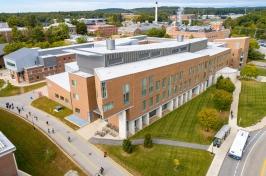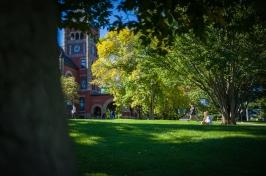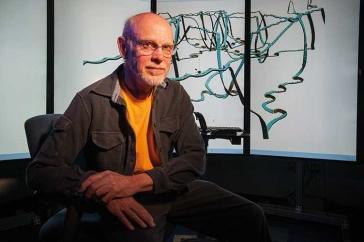
Joel Johnson, professor and chair of UNH’s Department of Earth Sciences, was recently selected as a lecturer for the prestigious 2024-2025 Ocean Discovery Lecture Series.
For more than 20 years, the Ocean Discovery Lecture Series (formerly the Distinguished Lecturer Series) has brought the exciting scientific results and discoveries of the International Ocean Discovery Program (IODP) and its predecessor programs to academic research institutions, museums and aquaria.
“It is an honor to be selected as an Ocean Discovery Lecturer,” says Johnson, who lecture is title Embrace diagenesis: The role of methane in carbon and sulfur sequestration in marine sediments. “I am eager to share some of my own research discoveries with others.”
Johnson, whose research career began in the Ocean Drilling Program (ODP) and launched his career in marine geology, has continued to participate on International Ocean Discovery Program (IODP) expeditions that sustained Johnson and his students' scientific careers for the last 20 years.
Johnson says scientific ocean drilling is the only way to access the spectacular archive of Earth history that is preserved in marine sediments. His current research on authigenic minerals, formed after deposition of the sediments, shows these minerals serve as geological archives of paleo-pore water conditions that reflect changing environmental conditions through time. In the presence of methane, the precipitation of pyrite and authigenic carbonate is enhanced, increasing the capacity of marine sediments to sequester carbon and sulfur.
“Tracking the formation and geochemical evolution of these minerals throughout the sediment column allows us to reconstruct the mechanisms that regulate, transform, and sequester carbon and sulfur in the ocean through time,” says Johnson.
Since 1991, the lecture series has given more than 1,000 presentations to diverse audiences. Lecture topics range widely, and include monsoon history, ice sheet dynamics, sediment diagenesis, tectonics, geomicrobiology, and more.



















































